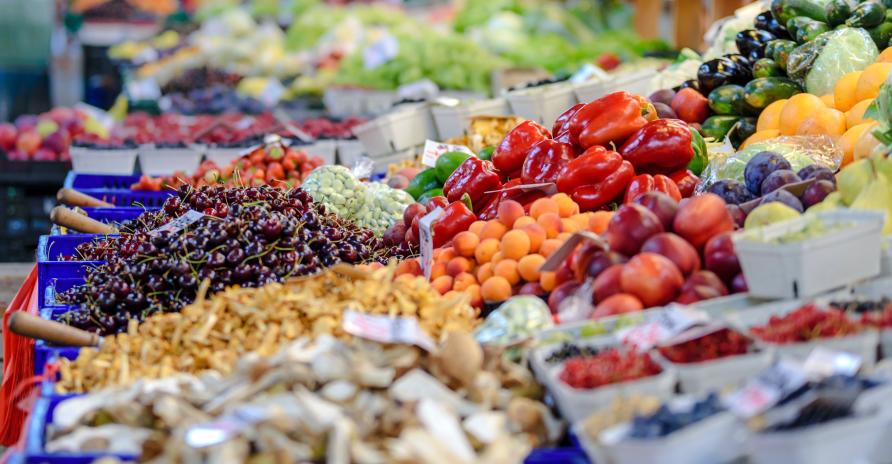University students going hungry in Australia was a persistent problem before COVID-19, now it’s time we use the crisis to come up with sustainable solutions for our campuses.
This article by Associate Professor Jane Dyson, Professor Craig Jeffrey, Associate Professor Gyorgy Scrinis, Charlene Edwards, Rafaela Anja, Louisa Ellis, Aasha Sriram, Mia Zentari and Eugenia Zoubtchenko was first published on Pursuit on 16 March 2021.
The COVID-19 pandemic pushed the issue of food insecurity among university students to the front pages of many newspapers in Australia and the United States. But even before the recent pandemic, there were increasing numbers of students reporting food insecurity.
Rising tuition and living costs combined with declining state support for students and the privatisation of food provision on campuses has increased students’ food insecurity in places as diverse as the US, Malaysia, and Nigeria.

Food insecurity is a particular problem in Australia because of the high proportion of international students, the relative absence of cheap subsidised food on many Australian university campuses, and low awareness of the issue.
Research conducted in the early 2010s in Queensland suggested that a quarter of students suffered from food insecurity, and more recent studies suggest the proportion could be over 40 per cent.
Students’ food insecurity nevertheless remains a largely hidden problem – a ‘faceless silent issue’ – and one that is often normalised in popular discussion with jokes about ‘starving students’, for example.
Researching food insecurity
Concerned about the silence around the issue, we have been working on a project funded by the University of Melbourne’s Student Services Amenities Fee Grant, and supported also by the Social Science Research Council and Melbourne Social Equity Institute, to understand student food insecurity among the University’s students.
Most of the existing studies on university student food insecurity are quantitative, but we chose a more qualitative, interview-based approach, and one that involved co-producing the research with students.

The academics involved in the project recruited four students who themselves had experienced food insecurity to work as co-researchers on the project. These four students then interviewed an additional 40 students who had experienced food insecurity, who were given supermarket vouchers in exchange for their time.
Our project showed that many students at the University of Melbourne currently experience food insecurity, and this is especially evident among international students.
Some students said they had had to skip meals. More commonly, students reported having to compromise the diversity and nutritional quality of their diets because of a lack of money, time and information.
Several students referred to being vegetarians “by necessity rather than choice”. Others referred to intermittent fasting as a strategy or to weight loss following enrolment at University.
COVID-19 greatly exacerbated food insecurity for many international students. But some students said that the COVID-19 pandemic had actually made it easier for them to access food, because of the food relief measures that emerged and the increased Centrelink payments.
The voucher scheme for international students to get food from Queen Victoria Market was particularly praised. Some students also expressed appreciation for the University’s free cooked meal program developed during the pandemic.
Food insecurity is a problem that has multiple knock-on effects.
Our research pointed to the close relationship between food insecurity and physical/mental ill health, poor performance in studies and difficulties navigating social relationships on campus.
The issue of the shame associated with food insecurity was an especially notable theme.

One of our goals was to show that students are not passive in the face of the problem of food insecurity – they are active agents, seeking to address the problem on multiple levels.
Our interviews richly illustrated students’ capacity to ‘hustle’ for food within campus food environments; for example, by seeking out events that provided food. Some students told tales of ‘surfing’ the campus in search of barbecues providing free sausages.
Students also told us how their experience of food insecurity had led them to reflect on the politics of food more broadly.
They talked about their right to food and the need to ensure cruelty-free food. Students repositioned themselves away from being victims of ‘food insecurity’ to instead being citizen agents, with rights to shape the conditions of production, distribution and consumption of food.
What was also very evident was the sense of care and responsibility that students felt for each other, especially a sense of obligation among domestic students to assist international students.
Next steps
In North America, universities and governments have often acknowledged and addressed food insecurity, but universities have tended to concentrate on providing emergency assistance via the establishment of food pantries.
This approach risks stigmatising students and fails to address students’ lack of access to fresh food, since most pantries only contain non-perishable items. As one of our interviewees told us “God, I miss fruit”.
A notable exception to this in the US is the CalFresh initiative at the University of California.

There are some promising moves in Australia thinking creatively around the issue of food security in particular, and food more generally, such as Second Bite and the Nourish Network. Universities have been especially active during the pandemic in developing new schemes.
Students are also active, for example, via the development of food cooperatives, free breakfasts, food bank programs, and initiatives such as the student-run Fair Food Challenge aimed at improving campus food systems.
Students are keen for these initiatives to be deepened in at least four ways.
First, the university sector might think creatively about how to build on the excellent work undertaken in the mental health area as a way of de-stigmatising food insecurity.
Second, the university sector might reflect on whether the policy of inviting large numbers of private providers to occupy food spaces on campuses might be balanced with initiatives to provide nutritious subsidised food in the process, perhaps rethinking the traditional idea of the ‘the university canteen’ as a social space.
Third, universities could do more in terms of countering the problem of food waste.
Fourth, since many universities have agriculture departments and diverse landholdings – they could link students’ consumption with the production of ethically-produced, local, and nutritious food on university farms.
Across such initiatives, students can and must be central to change.
Listen to a podcast on the project here. And for any further information on this research please contact Professor Craig Jeffrey.
A version of this article appears in The Conversation.